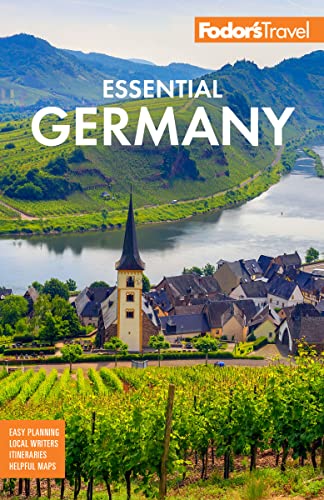Outdoors in the Bavarian Alps
Bursting up from the lowlands of southern Germany, the Bavarian Alps form both an awe-inspiring border with Austria and a superb natural playground for outdoors enthusiasts.
Visible from Munich on a clear day, the northern front of the Alps stretches over 300 km (186 miles) from Lake Constance in the west to Berchtesgaden in the east, and acts as a threshold to the towering mountain ranges that lie farther south. Lower in altitude than their Austrian, Swiss, and French cousins, the Bavarian Alps have the advantage of shorter distances between their summits and the valleys below, forming an ideal environment for casual hikers and serious mountaineers alike.
In spring and summer cowbells tinkle and wild flowers blanket meadows beside trails that course up and down the mountainsides. In winter, snow engulfs the region, turning trails into paths for cross-country skiers and the mountainsides into pistes for snowboarders and downhill skiers to carve their way down.
Lederhosen
Along with sausages and enormous mugs of frothy beer, lederhosen form the holy trinity of what many foreigners believe to be stereotypically "German." The reality, however, is that the embroidered leather breeches are traditionally worn only in Bavaria, particularly the southern Alpine areas, where the durability and protection of leather are advantageous for those working as carpenters or farmers in the region. Handmade, tailored versions are worn on Sundays and on special occasions.
Best Ways to Explore
By Foot
It’s not without good reason that wanderlust is a German word. The desire to travel and explore has been strong for hundreds of years in Germany, especially in places like the Alps where strenuous strolls are rewarded with breathtaking vistas. There are more than 7,000 km (4,350 miles) of walking trails in the Allgäu region alone to wander, conveniently divided into valley walks, mid-altitude trails, and summit hikes reflecting the varying altitude and difficulty. Hikes can be undertaken as day trips or as weeks-long endeavors, and there are campsites, mountain huts, farmhouses, and hotels to overnight in along the way, as well as a decent infrastructure of buses, trains, and cable cars to get you to your starting point. The Bavaria Tourism Office (www.bavaria.by) has more information on hiking trails.
By Bike
You don’t need to venture onto their slopes to appreciate the Alps’ beauty; cycling through the foothills at their base affords stunning views of the mountains combined with the luxury of refreshing stop-offs in beer gardens and dips in beautiful lakes like the Tegernsee. There’s plenty of accommodation tailored to cyclists throughout the region and local trains are normally equipped with a bicycle carriage or two to transport you to more remote locations. The Alps also have thousands of miles of mountain-bike-friendly trails and a number of special bike parks serviced by cable cars.
By Skis
Neither as high nor famous as their neighbors, the Bavarian Alps are frequently overlooked as a winter-sports destination. Resorts on the German side of the border may have shorter seasons than places like Zermatt and Chamonix, but they’re also generally less expensive in terms of food and accommodations, and many, including Zugspitze, are easily accessed from Munich for day trips.
Best Photo Ops
No matter where you are around the Alps you’ll be inundated with sights worth snapping. Here are a few:
- Neuschwanstein Castle sits theatrically on the side of a mountain, its grand towers set against a background of tree- and snow-covered peaks.
- The panoramic view from close to 10,000 feet at the peak of Germany’s highest mountain, the Zugspitze, takes in 400 peaks in four countries.
- Reputedly the cleanest lake in Germany, Königssee is also endowed with steep rock formations that soar thousands of meters up above the lake, beautifully framing its crystalline waters.
- From Tegernsee’s lovely Benedictine monastery, you can wander down to the lake for spectacular vistas of its glittering surface and the Alps beyond.




